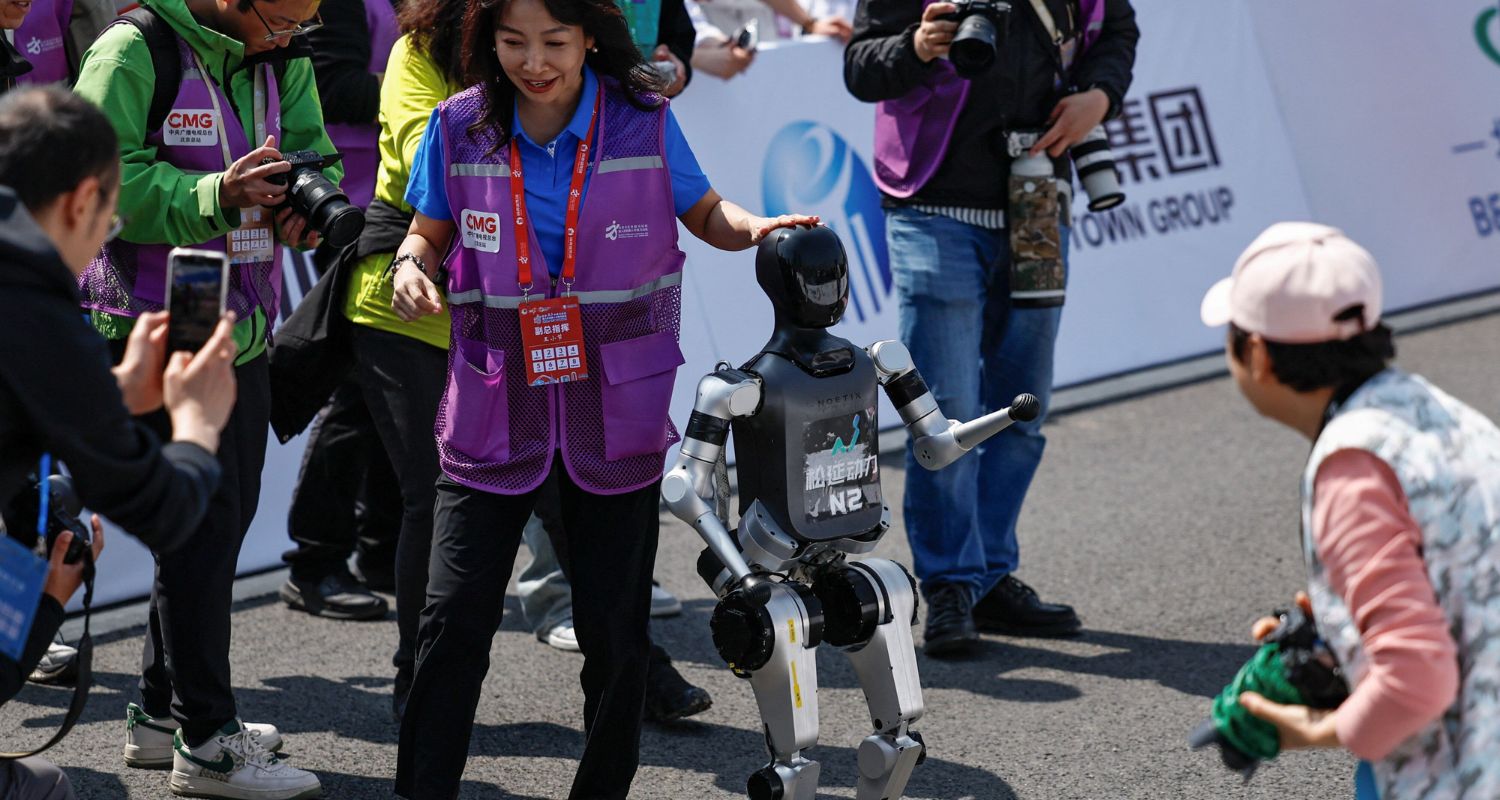For the first time, humanoid robots competed alongside human participants in a half-marathon held in Beijing, China on Saturday. While robots have previously made appearances in marathons across the country, this marked the inaugural event where they officially raced against human runners.
The course featured a dedicated lane for the machines, separated from the human participants by a parallel barrier to ensure safety and avoid interference during the race.
The humanoid robots came in a range of shapes and sizes, from under four feet (120 cm) to nearly six feet tall (1.8 metres), and were supported by teams of engineers, navigators, and operators throughout the event. Unlike human runners who followed conventional marathon rules, the robots operated under special guidelines, including designated pit stops for battery changes.
Organisers likened the race to a motorsport competition, highlighting the importance of engineering, maintenance, and real-time support.
Among the human runners, the fastest participant completed the half-marathon in just over an hour, clocking 1 hour and 2 minutes. In contrast, the winning humanoid robot, Tiangong Ultra, developed by the Beijing Innovation Center of Human Robotics, took 2 hours and 40 minutes to complete the race.
Although the robots still trail far behind humans in terms of speed and stamina, the event was seen as a significant step forward in the development of robotics and artificial intelligence. Awards were also presented in categories such as best gait design, endurance, and innovative appearance.

Also Read: Next gen computer chips process data at the speed of light
Spectators were intrigued by the showcase of evolving AI capabilities. He Sishu, an attendee working in artificial intelligence, described the robots' performance as stable and impressive, expressing a sense of witnessing technological evolution in real time.
The event underscored China’s push toward boosting economic growth through advancements in robotics, though it also drew criticism. Some questioned the relevance of robots running marathons as a true measure of their industrial or real-world utility.
Among the 20 humanoid robot teams that participated, many placed emphasis on human-like qualities. Several robots were dressed in accessories like sneakers, boxing gloves, and even headbands bearing motivational phrases like “Bound to Win” in Chinese.
One team proudly showcased a robot with a feminine design, complete with facial expressions that allowed it to wink and smile, claiming it appeared almost human.
Also Read: AI and human goals: Measuring misalignment



